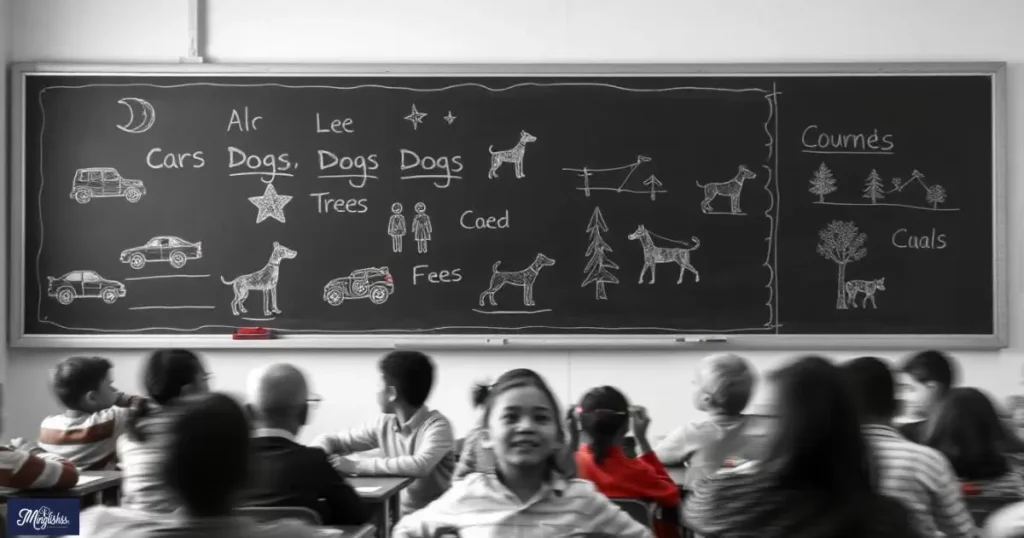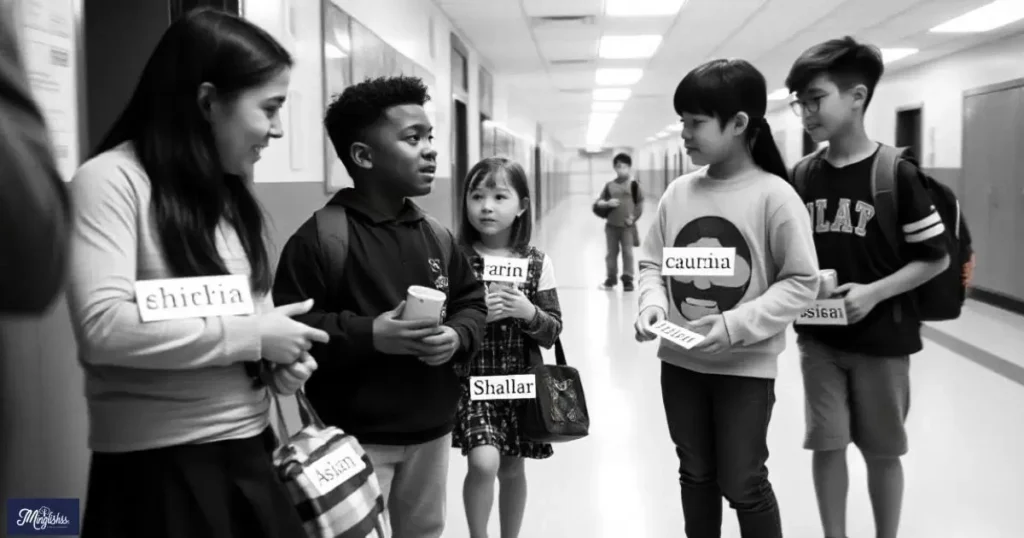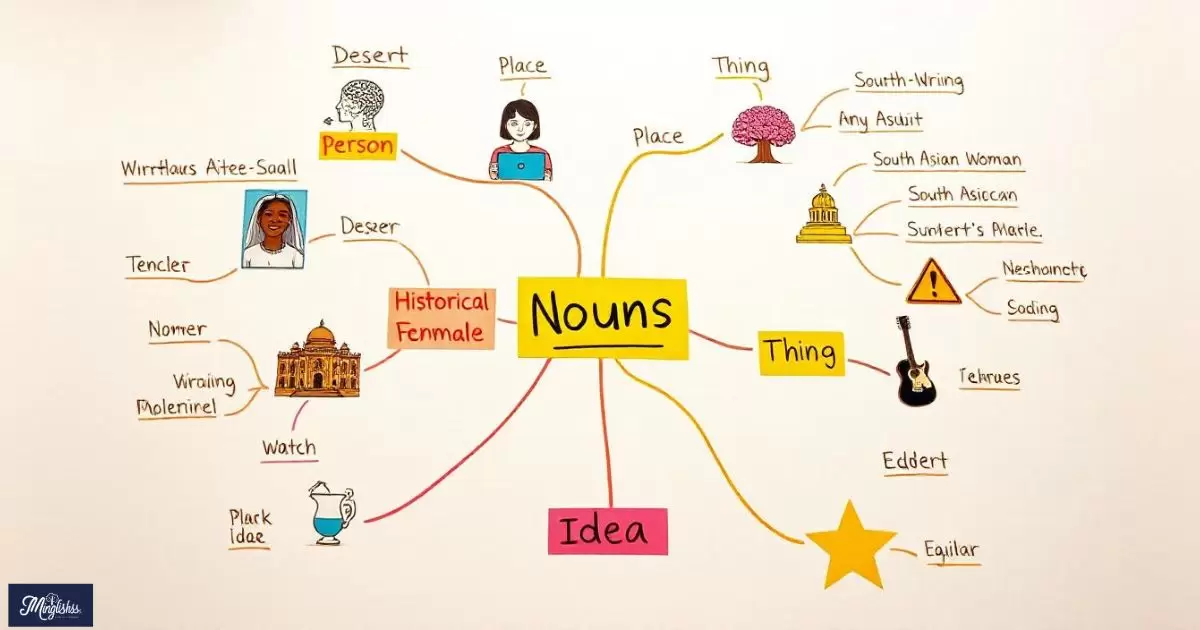Nouns are fundamental building blocks in the English language. They serve as the names for people, places, things, and ideas, making them crucial for effective communication. Understanding the different kinds of nouns can help you use them accurately and enrich your language skills.
Exploring the various kinds of nouns will enhance your writing and speaking abilities. Whether you’re crafting a story, composing an essay, or engaging in everyday conversations, a solid grasp of noun types will improve your clarity and expression.
In this blog post, we’ll delve into the different categories of nouns, including concrete, abstract, countable, uncountable, and collective nouns.
We’ll provide definitions, examples, and sentences to illustrate each type. This guide will be a valuable resource for anyone looking to deepen their understanding of nouns.
Concrete Nouns
Concrete nouns refer to things that can be perceived by the senses—things you can see, touch, hear, smell, or taste.
Definition
Concrete nouns are tangible objects or substances that you can experience with your five senses. They are the physical items we interact with daily.
Examples of Concrete Nouns
- The dog barked loudly.
- She ate a sandwich.
- They visited the museum.
- I saw the movie.
- The book was on the table.
Note
Concrete nouns are straightforward because they represent things that are physically present. For example, “The dog barked loudly” features “dog,” a concrete noun that you can see and hear.
Abstract Nouns
Abstract nouns represent ideas, qualities, or conditions that cannot be perceived with the senses. They are intangible and exist as concepts.
Definition
Abstract nouns denote things that are not physical or tangible. They refer to feelings, concepts, or conditions that we can think about but not touch.
Examples of Abstract Nouns
- Love is important in relationships.
- Happiness makes life fulfilling.
- Freedom is a fundamental right.
- Courage helps us face fears.
- Wisdom comes with experience.
Note
Abstract nouns are crucial for discussing emotions, qualities, and ideas. For example, “Love is important in relationships” uses “love” to express an intangible concept.
Countable Nouns

Countable nouns are items that can be counted individually. They have both singular and plural forms.
Definition
Countable nouns are objects or things that can be counted. They have distinct singular and plural forms, and you can use numbers with them.
Examples of Countable Nouns
- She has three books.
- They bought two chairs.
- I saw four dogs.
- He owns five cars.
- We need ten pens.
Note
Countable nouns are easy to quantify. For example, “She has three books” uses “books,” a countable noun that can be counted.
Uncountable Nouns
Uncountable nouns represent items that cannot be counted individually. They usually refer to substances, concepts, or collective categories.
Definition
Uncountable nouns refer to things that cannot be counted as separate units. They are typically used with singular verbs and cannot be pluralized.
Examples of Uncountable Nouns
- Water is essential for life.
- Sugar is sweet.
- Information is valuable.
- Music brings joy.
- Furniture can be expensive.
Note
Uncountable nouns often describe mass or abstract concepts. For example, “Water is essential for life” uses “water,” an uncountable noun that refers to a substance without a distinct count.
Metaphors About Chocolate: Creative Descriptions
Collective Nouns
Collective nouns denote a group of individuals or things considered as a single unit.
Definition
Collective nouns refer to a group of people, animals, or things that are treated as one entity. They can be singular or plural, depending on their use in a sentence.
Examples of Collective Nouns
- The team won the championship.
- A flock of birds flew overhead.
- The family is going on vacation.
- The class attended the seminar.
- A herd of cattle grazed in the field.
Note
Collective nouns are used to describe groups as a whole. For example, “The team won the championship” uses “team” to refer to a group acting as one unit.
Proper Nouns
Proper nouns are specific names for individual people, places, or organizations. They always begin with a capital letter.
Definition
Proper nouns are specific names for unique entities. They are used to refer to particular people, places, or organizations.
Examples of Proper Nouns
- John went to Paris.
- Microsoft is a tech company.
- Mount Everest is the highest peak.
- The Eiffel Tower is in France.
- Shakespeare wrote many plays.
Note
Proper nouns identify unique entities and are always capitalized. For example, “John went to Paris” uses “John” and “Paris,” both proper nouns.
Common Nouns

Common nouns are general names for people, places, or things. They do not refer to specific entities and are not capitalized.
Definition
Common nouns are general names for non-specific items or entities. They represent everyday objects, people, or places.
Examples of Common Nouns
- The teacher is in the classroom.
- The city is bustling.
- A book was on the desk.
- The car is parked outside.
- A dog barked loudly.
Note
Common nouns refer to general items rather than specific ones. For example, “The teacher is in the classroom” uses “teacher” and “classroom,” common nouns that do not specify a particular entity.
Tenses of Nouns
Nouns themselves do not have tenses, but they can be used in sentences with different tenses. Understanding how nouns fit into various tenses can enhance sentence structure and clarity.
Present Simple
The present simple tense is used for regular actions or facts.
- Examples:
- The student studies every day.
- The cat sleeps on the sofa.
- The shop opens at 9 AM.
- The bus arrives at 5 PM.
- The teacher explains the lesson.
Past Simple
The past simple tense is used for actions that were completed in the past.
- Examples:
- The child played outside yesterday.
- The team won the match last week.
- The chef cooked a meal last night.
- The book was on the shelf.
- The movie started at 7 PM.
Future Simple
The future simple tense is used for actions that will happen in the future.
- Examples:
- The event will start at 6 PM.
- The project will be completed next month.
- The guests will arrive soon.
- The company will launch a new product.
- The kids will play in the park.
Answer To Key Question
1. What is the difference between concrete and abstract nouns?
Concrete nouns refer to physica Various Kinds of Nounsl objects you can perceive with your senses, while abstract nouns represent ideas or concepts that cannot be seen or touched.
2. How do countable nouns differ from uncountable nouns?
Countable nouns can be counted individually and have both singular and plural forms, whereas uncountable nouns cannot be counted as separate units and usually do not have a plural form.
3. Can collective nouns be singular or plural?
Collective nouns can be either Various Kinds of Nouns singular or plural, depending on whether you are referring to the group as a single unit or to its individual members.
4. What is the role of proper nouns in writing?
Proper nouns provide specific Various Kinds of Nounsnames for unique entities and are capitalized. They help to clearly identify and differentiate particular people, places, or organizations.
5. How can understanding noun types improve my writing?
Understanding noun types helps you use language more precisely, allowing for clearer and more effective communication. It also helps in constructing well-organized sentences and enhancing overall writing quality.
Conclusion
Exploring the various kinds of nouns enriches our understanding of language and enhances our ability to communicate effectively.
By grasping the differences between concrete and abstract nouns, countable and uncountable nouns, and other types, you can improve your writing and speaking skills.
Whether you’re identifying specific entities with proper nouns or describing general categories with common nouns, mastering noun usage will lead to clearer and more impactful communication.

Hi, I’m Lauren Reynolds: I bring creativity to English lessons, mixing fun with learning. My goal is to inspire students to explore and enjoy the language.










